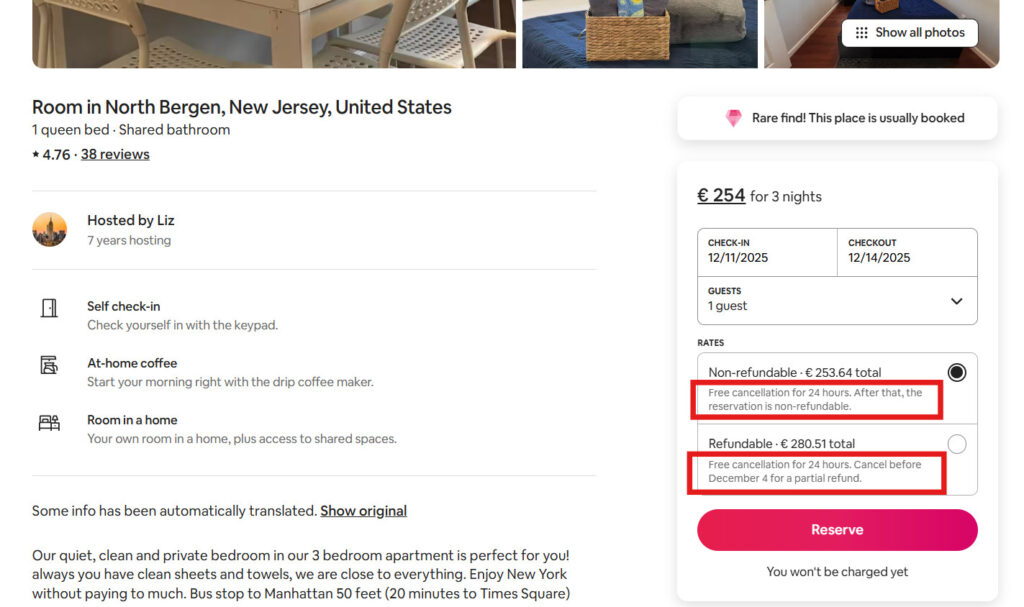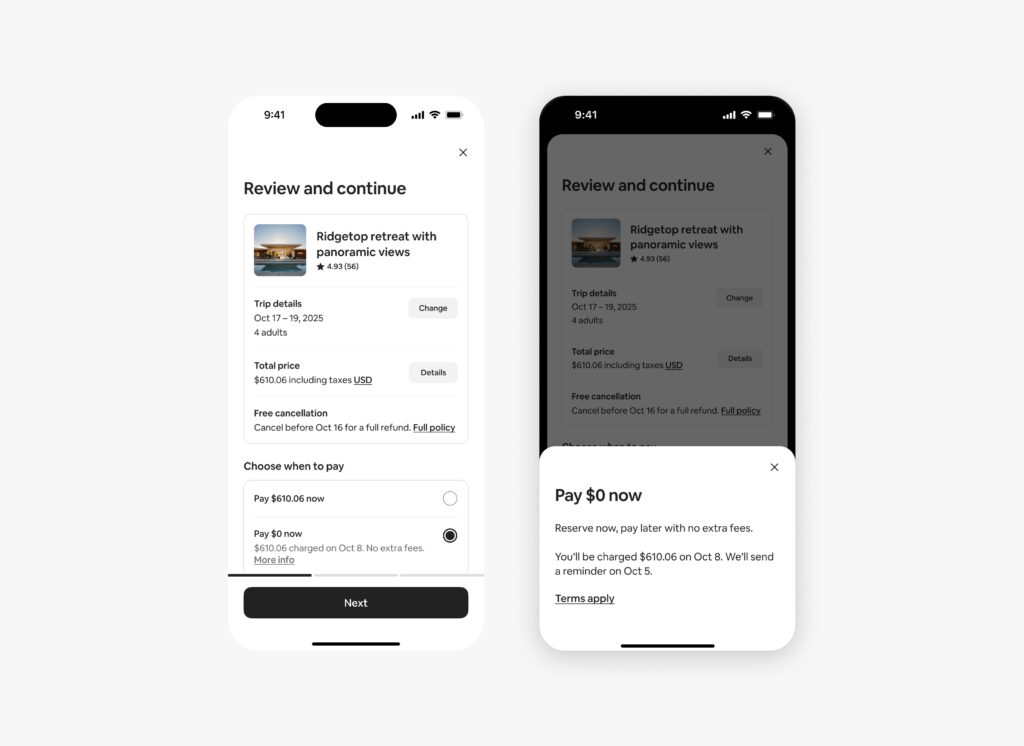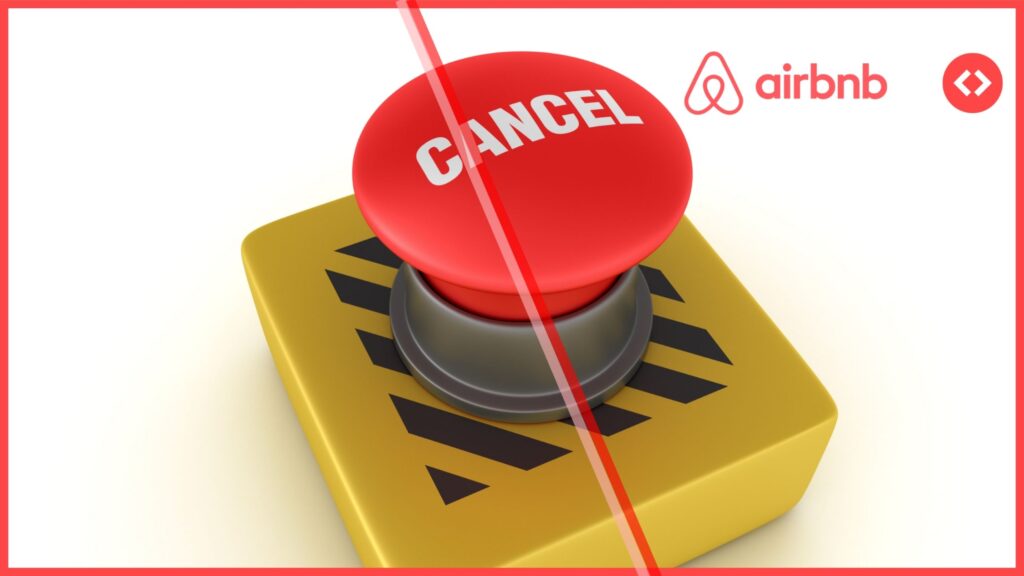For years, Airbnb hosts could rely on a certain kind of stability. Once a booking was made, it usually stuck. Unlike Booking.com—where guests often book three places and cancel two—Airbnb had a reputation for commitment.
That was thanks, in large part, to its Strict cancellation policy, which discouraged last-minute changes and made hosting feel predictable.
But that era is ending.
Starting in late 2025 and through 2026, Airbnb is overhauling how cancellations work. It’s introducing a new “Firm” policy, removing “Strict” for most hosts, adding a 24-hour free cancellation window for everyone, and preparing to roll out dynamic cancellation policies that can change by season or event.
The result: Airbnb will start to look—and behave—much more like Booking.com.
Airbnb Quietly Phases Out “Strict”
While Airbnb didn’t make a big announcement about it on its Q3 2025 earnings call, the change is already live in the Help Center and the Winter Release documentation:
The “Strict” cancellation policy is being retired for new listings. Only grandfathered hosts, those who already use it, can keep it.
The replacement is the new Firm policy:
- Full refund up to 30 days before check-in
- 50% refund from 7 to 30 days before check-in
- No refund within 7 days of arrival
That’s more flexible than the original Strict, which allowed zero refund less than 7 days before arrival.
It’s a big philosophical shift: predictability for hosts is being traded for confidence for guests.
Every Booking Now Comes With a 24-Hour Grace Period
As of October 1, 2025, all stays under 28 nights come with a 24-hour free cancellation window—regardless of the host’s policy.

If the reservation was confirmed more than 7 days before check-in, guests can cancel within a day and get a full refund, taxes included.
That means even a “Firm” or “Super Strict” policy can’t prevent those early cancellations.
For hosts, that’s a new reality: some bookings will vanish within a day of being made, no matter how carefully you set your rules.
“Reserve Now, Pay Later” Makes Commitment Even Softer
In Q3, Airbnb launched Reserve Now, Pay Later, which lets guests book eligible stays with $0 upfront.

Executives admitted that while it’s boosting bookings, it’s also slightly raising cancellation rates, something they’re willing to accept.
It’s easy to see why: when a guest doesn’t pay anything to reserve, they’re not really committed. They may cancel days later, or simply forget they booked.
From Airbnb’s perspective, that’s still a win: total booking volume goes up, even if individual hosts see more churn.
Coming in 2026: “Dynamic Cancellation Policies”
The Winter 2025 Release also teases something new for next year:
Hosts will be able to set different cancellation policies by date range.
That means:
- Flexible in slow months to attract more guests,
- Firm during high season or holidays,
- Super Strict (for eligible pros) during special events.
It’s a system Booking.com hosts have used for years, because it works. The easier a guest can cancel, the more likely they are to book in the first place.
But the trade-off is obvious: hosts will need to manage policies more actively to avoid unwanted flexibility creeping into their peak dates.
Why Airbnb Is Doing This
The logic is straight out of the OTA playbook:
- Easier cancellations increase conversion rates.
- More conversions mean more completed stays overall.
- Guest flexibility helps Airbnb compete globally, especially with Booking.com.
It’s a growth strategy, even if it means individual hosts bear more risk.
Airbnb executives noted in their Q3 call that policy changes and “Reserve Now, Pay Later” helped boost Nights Booked.
Internally, Airbnb seems convinced that reducing friction for guests ultimately leads to more revenue for everyone.
What Hosts Should Expect in 2026
Hosts are likely to see:
- More short-term cancellations (especially within 24 hours of booking)
- Higher booking volume, but less reliability
- More calendar volatility, requiring faster rebooking
- Subtle algorithm nudges encouraging “more flexible” policies
For Airbnb, this is about scale.
For hosts, it’s about adapting to a system that increasingly rewards availability and reactivity over rigidity.
The Big Picture
Airbnb is entering its “guest-optional” era, where convenience, not commitment, drives growth.
The company once built its brand on trust between strangers.
Now, it’s building on freedom between transactions.
That’s not necessarily bad news, but it’s a shift every host should understand:
Airbnb’s priority in 2026 isn’t reducing cancellations — it’s increasing bookings.And in that equation, a few more cancellations are simply the cost of doing business.
Thibault Masson is a leading expert in vacation rental revenue management and dynamic pricing strategies. As Head of Product Marketing at PriceLabs and founder of Rental Scale-Up, Thibault empowers hosts and property managers with actionable insights and data-driven solutions. With over a decade managing luxury rentals in Bali and St. Barths, he is a sought-after industry speaker and prolific content creator, making complex topics simple for global audiences.








